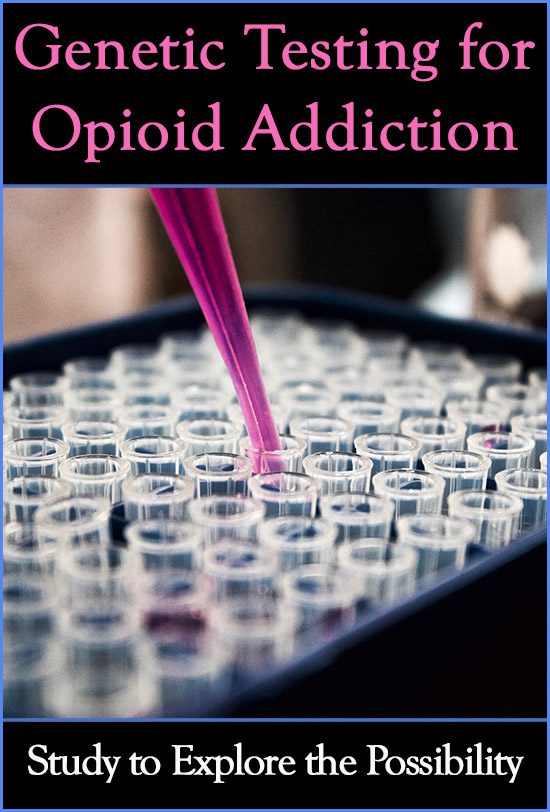In keeping up the fight against the ongoing crisis of opioid addiction in the United States, researchers at the University of Cincinnati and Ohio State University announced a new study about genetic testing for opioid addiction.
The study will explore how people’s genetic makeup might indicate whether or not they’re predisposed to addiction.
For the first time in quite a while, data from the Centers for Disease Control and Prevention (CDC) show that fatal drug overdose deaths declined from 70,000 in 2017 to an estimated 68,000 in 2018.
While the slight decrease in drug deaths is a positive sign, researchers at the CDC are not exactly taking a victory lap.
“This crisis developed over two decades,” Secretary of Health and Human Services Alex Azar said in a statement, “and it will not be solved overnight.”

Opioid Addiction Genetic Study Participants
The year-long, $1.6 million studies, is funded by litigation settlements in the Ohio Attorney General’s Office. “We want to know why two people can take the same drug in the same dosage and only one becomes addicted,” Dave Yost, the Ohio AG, said in an interview.
The study, which starts in January 2020, will seek permission from patients in 1,500 different emergency rooms and look at the following groups:
- Those who have never used opioids before
- Patients that have used opioids, but do not suffer from opioid use disorder
- Individuals that arrive in the ER already struggling from opioid addiction
Participants will provide cheek swabs for DNA samples. Importantly, the samples will not be linked to their identity and cannot be used by law enforcement. This will encourage those being treated for an opioid overdose to participate without fear of being charged or investigated for drug possession.
Once the swabs are collected, they will be analyzed for 180 genetic markers, over six months, to see if there’s an identifiable relationship between any of the markers and addiction.
New Medical Testing Trends
While this study is the largest of its kind to focus on addiction, mining the human genome to improve healthcare outcomes has become a growing trend in medical science in recent years.
Personalized Medicine is the treatment of chronic illnesses tailored to a patient’s unique genetic code.
It allows physicians another tool to predict or prevent disease in their patients, as well as prescribe targeted therapies that, hopefully, are more efficient and come with fewer negative side effects.
By testing genetic metabolism, researchers are able to identify enzymes in the body that tell them how patients will metabolize particular medications.
This is incredibly important for patients suffering from diseases like fast-spreading cancers. Instead of experimenting with ineffective medications, physicians can pinpoint what the most effective treatment approach will be and save precious time.
Experts believe this kind of knowledge will be useful in treating other illnesses, such as mental health disorders. With this latest study out of Ohio, addiction might be added to this growing list.
Addiction Prevention
By knowing ahead of time if a person is predisposed to opioid addiction, a patient recovering from back surgery might get prescribed fewer opioid painkillers, or receive more counseling and follow-up visits than someone without the predisposition.
In the end, though, that person may be spared a lifetime of struggle with the disease of addiction.
Opioid addiction, and all forms of addiction for that matter, can be successfully treated and managed, but only if a person is willing to be admitted to an addiction treatment program. Even then, there’s a chance they will relapse.
Unfortunately, most people with a substance addiction don’t seek treatment and it’s estimated that only 11 percent go to treatment.
The most successful way to keep people from becoming addicted to any substances is to prevent them from ever starting to use them.
If genetic testing for opioid addiction is possible and medical science can predict those who are predisposed to becoming addicted, there’s hope that many lives can be saved from the grip of addiction.
Related:
10 Ways to Treat Pain Without Opioids or Prescription Painkillers
What are the Most Common Factors That Lead to Addiction?





